A cowman is a person who works specifically with cattle.
Contents

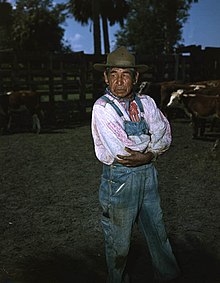
A cowman is a person who works specifically with cattle.


Usage of the word "cowman" has significant geographic variation, though is sometimes used interchangeably with terms such as "stockman", "cattleman", "rancher" and "grazier."
In England, where the word cowman originates, the social status of a cowman originally was a minor landowner, a yeoman, rather than a cowherd or herdsman. In medieval Gaelic Ireland a cowman was known as a bóaire and was landed. [1] Today, however, in the British Isles the cowman usually is an employee, synonymous with cowherd. [2] [3] A highly skilled, superior cowman would be equivalent to an American farm or ranch manager, responsible for daily management of the herd. An ordinary cowman would be equivalent to a cowboy in the United States, or a stockman in Australia.
A cowman with a dairy farm may also be known in the British Isles as a milkman . [4] In both the British Isles and the United States milkman commonly means someone who delivers milk to houses.
In the United States and Canada, the term "cowman" is used, but is less common than other terms such as "rancher," "cattleman," "stockgrower" or, in some cases, "cowboy." It is generally defined as an individual who owns cattle. [2] The more common term for a person who owns and works with dairy cattle usually is dairy farmer, while a person with beef cattle is a cattle rancher. Being farmers and ranchers, American cattlemen are generally landowners, though on occasion the terms may include foremen or managers of particularly large operations. The employees of a ranch who work with the livestock may be called cowboys, wranglers, sheepherders, or simply "ranch hands." However, the term "cowman" is occasionally used as a synonym for cowboy. [3]
In modern British English, the word cowman is a core term, not part of a dialect. [4] Cowman is not an entry in Dictionary of American Regional English .
This word is the origin of the occupational surname Cowman.
In the Old West there were range wars, conflicts between ranchers and farmers over access to resources, especially water. This is reflected in much of the art, literature, and film in the Western genre. An example is the song "The Farmer and the Cowman" in the musical Oklahoma!

A farmer is a person engaged in agriculture, raising living organisms for food or raw materials. The term usually applies to people who do some combination of raising field crops, orchards, vineyards, poultry, or other livestock. A farmer might own the farm land or might work as a laborer on land owned by others. In most developed economies, a "farmer" is usually a farm owner (landowner), while employees of the farm are known as farm workers. However, in other older definitions a farmer was a person who promotes or improves the growth of plants, land or crops or raises animals by labor and attention.

A cowboy is an animal herder who tends cattle on ranches in North America, traditionally on horseback, and often performs a multitude of other ranch-related tasks. The historic American cowboy of the late 19th century arose from the vaquero traditions of northern Mexico and became a figure of special significance and legend. A subtype, called a wrangler, specifically tends the horses used to work cattle. In addition to ranch work, some cowboys work for or participate in rodeos. Cowgirls, first defined as such in the late 19th century, had a less-well documented historical role, but in the modern world work at identical tasks and have obtained considerable respect for their achievements. Cattle handlers in many other parts of the world, particularly South America and Australia, perform work similar to the cowboy.

A herder is a pastoral worker responsible for the care and management of a herd or flock of domestic animals, usually on open pasture. It is particularly associated with nomadic or transhumant management of stock, or with common land grazing. The work is often done either on foot or mounted.
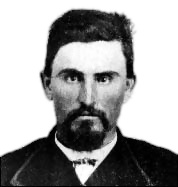
Charles Goodnight, also known as Charlie Goodnight, was a rancher in the American West. In 1955, he was inducted into the Hall of Great Westerners of the National Cowboy & Western Heritage Museum.

A milkmaid, milk maid, milkwoman, dairymaid, or dairywoman was a girl or woman who milked cows. She also used the milk to prepare dairy products such as cream, butter, and cheese. Many large houses employed milkmaids instead of having other staff do the work. The term milkmaid is not the female equivalent of milkman in the sense of one who delivers milk to the consumer; it is the female equivalent of milkman in the sense of cowman or dairyman.
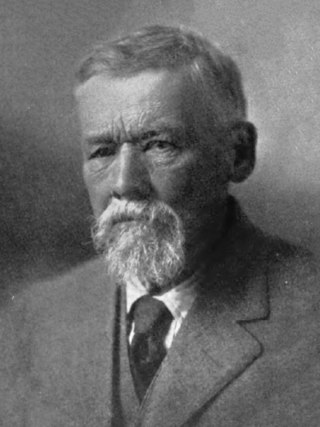
John Horton Slaughter, also known as Texas John Slaughter, was an American lawman, cowboy, poker player and rancher in the Southwestern United States during the late 19th and early 20th centuries. After serving in the Confederate States Army during the American Civil War, Slaughter earned a reputation fighting hostile Indians and Mexican and American outlaws in the Arizona and New Mexico territories. In the latter half of his life, he lived at the San Bernardino Ranch, which is today a well-preserved National Historic Landmark in Cochise County in far southeastern Arizona. In 1964, he was inducted into the Hall of Great Westerners of the National Cowboy & Western Heritage Museum.

Florida crackers were colonial-era British, American pioneer settlers in what is now the U.S. state of Florida; the term is also applied to their descendants, to the present day, and their subculture among white Southerners. The first crackers arrived in 1763 after Spain traded Florida to Great Britain following the latter's victory over France in the Seven Years' War, though much of traditional Florida cracker folk culture dates to the 19th century.

A sheep station is a large property in Australia or New Zealand, whose main activity is the raising of sheep for their wool and/or meat. In Australia, sheep stations are usually in the south-east or south-west of the country. In New Zealand the Merinos are usually in the high country of the South Island. These properties may be thousands of square kilometres in size and run low stocking rates to be able to sustainably provide enough feed and water for the stock.
Cowherd may refer to:

Cattle drives were a major economic activity in the 19th and early 20th century American West, particularly between 1850s and 1910s. In this period, 27 million cattle were driven from Texas to railheads in Kansas, for shipment to stockyards in Louisiana and points east. The long distances covered, the need for periodic rests by riders and animals, and the establishment of railheads led to the development of "cow towns" across the frontier.
Cowman may refer to:
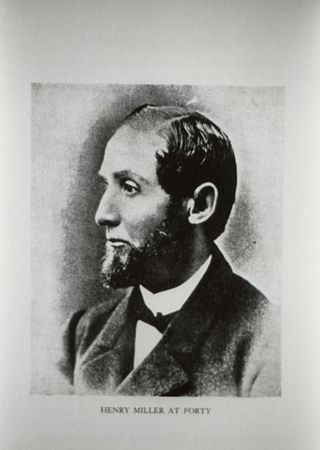
Henry Miller was a German-American rancher known as the "Cattle King of California" who at one point in the late 19th century was one of the largest land-owners in the United States.
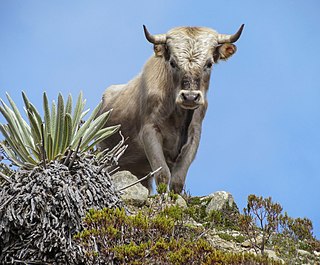
A maverick is an animal, usually a form of cattle, that does not carry a brand. It is a word also used to describe a person who acts free from constraints or organizational guidelines.
Stockman may refer to:
Cattle baron is a historic term for a local businessman and landowner who possessed great power or influence through the operation of a large ranch with many beef cattle. Cattle barons in the late 19th century United States were also sometimes referred to as cowmen, stockmen, or just ranchers. In Australia, similar individuals owned large cattle stations. A similar phenomenon occurred in part of Canada in the early twentieth century.
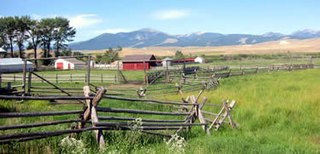
A ranch is an area of land, including various structures, given primarily to ranching, the practice of raising grazing livestock such as cattle and sheep. It is a subtype of farm. These terms are most often applied to livestock-raising operations in Mexico, the Western United States and Western Canada, though there are ranches in other areas. People who own or operate a ranch are called ranchers, cattlemen, or stockgrowers. Ranching is also a method used to raise less common livestock such as horses, elk, American bison, ostrich, emu, and alpaca.

Aztec Land and Cattle Company, Limited ("Aztec") is a land company with a historic presence in Arizona. It was formed in 1884 and incorporated in early 1885 as a cattle ranching operation that purchased 1,000,000 acres in northern Arizona from the Atlantic & Pacific Railroad. It then imported approximately 32,000 head of cattle from Texas and commenced ranching operations in Arizona. Because Aztec's brand was the Hashknife, a saddler's knife used on early day ranches, the company was known more famously as The Hashknife Outfit. The company has been in continuous existence since 1884.

Colorado Sunset is a 1939 American Western film directed by George Sherman and starring Gene Autry, Smiley Burnette, and June Storey. Written by Betty Burbridge and Stanley Roberts, based on a story by Luci Ward and Jack Natteford, the film is about a singing cowboy and his buddies who discover that the ranch they bought is really a dairy farm—and worse, it's subject to intimidation from a protection racket that prevents dairy products from safely reaching the market.

Samuel Burk Burnett was an American cattleman and rancher from Texas, owner of the 6666 Ranch, and namesake of Burkburnett, Texas.

Isam Dart, also known as Isom, was a cattle driver, rancher, and horse and cattle rustler during the late 19th century in the Wild West. He settled in Browns Park in northwestern Colorado, where he was considered by his neighbors to be a "superlative rider and roper, a good neighbor, and an expert and industrious cattle thief." He and his partner Mat Rash were gunned down in separate events and were believed to have been assassinated by Tom Horn, a hired gunman.